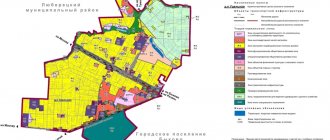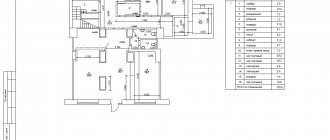A cooperative is...
“Cooperative” is an English word that defines a group of people or organizations united as one team to achieve certain goals (economic, social, cultural, etc.).
the following conditions are collectively
- there is a common goal;
- each member of the cooperative contributed his share (share) to the common fund, i.e. is a shareholder;
- This community is governed democratically. This means that each member of the cooperative has 1 vote, i.e. all members are equal, and management decisions are made by all shareholders.
Often several cooperatives form one association to optimize the achievement of their goals.
Cooperatives are also called the third sector of the economy . Let me explain this expression: the economy consists of the private and public sectors, i.e. Some assets belong to private individuals, some to the state. These are two sectors of the economy.
A cooperative (third sector) is private property under public management.
For example, members of a dacha cooperative (owners of private property) unite into one organization in order to jointly solve common problems (public management).
What are the rights and responsibilities within the community?
Within an already created association, each member of the community has certain rights and responsibilities regarding this issue, all of them are spelled out in the Charter. The charter must take into account all issues that may arise in the process of relations between the cooperative and an individual.
The GSK cannot consist exclusively of individuals or legal entities. In order for a community to be officially recognized by the GSK, it must include both individuals and legal entities united by one goal.
An approximate list of responsibilities of members of the cooperative looks like this:
- it is necessary to pay fees on time;
- attend general meetings, which are announced in advance;
- take part in events that are determined on the agenda;
- pay taxes on time;
- submit financial and tax reporting within the deadlines specified by law;
- comply with the Charter.
If a garage cooperative has common property, then it belongs to members of the community; in addition, commercial activity is not prohibited on the territory of the cooperative.
That is, if a member of the cooperative wants, then he can legally engage in commercial activities and make a profit. Although initially the main purpose of its creation is not profit or income.
Let's consider the rights of GSK members :
- ownership of cooperative property;
- use community property;
- dispose of the property of the GSK, if this is determined by the Charter;
- the right to vote at GC meetings;
- receive payments for shares and others;
- if there is a reorganization of the State Joint Stock Company, then all its rights are transferred to its legal successors;
- if he bought the property, he becomes its full owner;
- in case of premature withdrawal from the GSK, its member has the right to receive his share of the property at the time of withdrawal;
- the right to inherit property in accordance with the Law of the Russian Federation.
Types of cooperatives
Cooperatives are divided into:
- for commercial and non-commercial: commercial, the goal is to make a profit (for example, an agricultural cooperative),
- non-profit, the goal is joint business activities without generating income (for example, a dacha cooperative);
- production, the goal is the joint production of any product by members of the cooperative for the purpose of its sale,
Cooperatives are classified according to the nature of their activities. Let us dwell in a little more detail on the types of cooperatives that are most relevant today.
Production cooperative (PC)
This is an organization that unites at least 5 individuals (legal entities are allowed) to conduct joint production activities with the aim of making a profit.
A condition of membership is making a share contribution to the general fund. The contribution may be:
- money;
- securities;
- property;
- intangible assets.
The activities of the PC are regulated by the Charter, and at the legislative level are regulated by:
- Civil Code (Civil Code) (Articles 106.1 – 106.6);
- Federal Law (FZ) No. 41.
Members of the PC bear subsidiary liability for the obligations of their cooperative (i.e., if the organization was unable to pay off its obligations, then the members of the cooperative must pay them off with their property).
Members of the PC can be:
- citizens of the Russian Federation;
- citizens of other states;
- stateless persons;
- legal entity (through a representative).
The management of the cooperative is carried out by a meeting of shareholders . A permanent body is the board and/or chairman. The positions are elective.
Each PC is subject to mandatory registration with the Federal Tax Service (Federal Tax Service). The PC is a tax payer depending on the taxation system. This can be either a general or simplified system.
Agricultural Production Cooperative (APC)
It is a subtype of production cooperative. A special feature is the type of activity :
- agricultural production (livestock farming, fish farming, crop farming);
- processing of agricultural products;
- marketing of agricultural products.
As a rule, the main share contributions to the SPC are land plots. But the share can be money and other material assets (for example, agricultural machines, combines, production tools, etc.).
Clarification: the above about share contributions applies to collective farms (collective farms), as one of the types of joint ventures. In cooperative farms (cooperative farms), land plots cannot be shares of members of the joint venture.
The activities of the SEC are regulated by the organization’s Charter and Art. 3 Federal Law No. 193 (as amended on December 2, 2019).
Agricultural consumer cooperative (SPotK)
Is a non-profit organization. The activity is similar to that of a cooperative cooperative, with the difference that making a profit is not the goal of cooperatives of this type. The functioning of the SPOTK is regulated by Art. 4 Federal Law No. 193.
SPOTK are created in order to more profitably purchase, for example, fertilizers, or process large volumes of products, etc. Of course, there is a material benefit for each member of the cooperative, but the profit is not distributed among all participants.
Conclusion: SPOTK are created to optimize (facilitate) the activities of cooperative members.
Important: unlike production cooperatives, members of consumer cooperatives are not liable for the obligations of their organization.
Housing and construction cooperative (HBC)
This form of cooperative was especially popular in the USSR and still exists today. Citizens unite in a cooperative for construction (they do not build it themselves, but hire a contract construction organization) and further maintenance of housing. Housing cooperative is a developer, construction company is a contractor.
The housing cooperative has no commercial benefit, therefore, it is a consumer cooperative.
Share contributions are cash. During the construction period, the share is equal to the cost of the apartment that will be built. After putting the house into operation, homeowners contribute money for its maintenance and service.
The activities of housing cooperatives are regulated by Chapter 11 of the Housing Code (LC) of the Russian Federation.
Garage-building cooperative (GSK)
This type is also consumer. Citizens unite in the Civil Code for the construction of individual garages and for their subsequent maintenance.
Share contributions are funds, the amount of which is equal to the cost of the garage. After paying the share, the citizen receives ownership of the garage.
Currently, the term GSK is not included in the legislative framework. Nowadays such cooperatives are called garage cooperatives (GC).
If a citizen joins an already existing GC after purchasing a garage, then he becomes a member of the cooperative and annually makes a share contribution, which goes towards maintaining the premises, etc. In addition, there are also targeted contributions, for example, for the repair of access roads.
There is no special legislative act regulating the activities of the Civil Code. Therefore, regulation is carried out by the general norms of the Civil Code of the Russian Federation
Analysis of judicial practice on the legalization of garage boxes in court on the territory of Barnaul
In the city of Barnaul, the following judicial and arbitration practice has been formed on the issues of legalization of garage boxes.
1. Thus, garage boxes built before 1995 are legitimized by the courts with reference to the fact that their ownership arose before the entry into force of Part 1 of the Civil Code of the Russian Federation and the Federal Law of July 21, 1997 No. 122-FZ “On state registration of rights to real estate and transactions with him".
In their justification, the courts point to the impossibility of obtaining an act of putting an object into operation, which prevents the registration of ownership of property in an administrative manner, since the absence of an act of putting an object into operation by virtue of the provisions of the Federal Law of July 21, 1997 No. 122-FZ “On State Registration of Rights on real estate and transactions with it" is a basis for refusal to register property rights. At the same time, the courts indicate that garage boxes built using economic methods before 1995, that is, before Part 1 of the Civil Code of the Russian Federation came into force, are not unauthorized buildings and the provisions of Article 222 of the Civil Code of the Russian Federation should not be applied to disputed legal relations.
This position is confirmed by the practice of higher courts, so the Presidium of the Supreme Arbitration Court of the Russian Federation, in its resolution dated January 24, 2012 No. 12048/11, indicated that buildings, structures and structures for non-residential purposes, built before 01/01/1995, by force of law cannot be recognized as unauthorized buildings. By virtue of Part 1 of Article 7 of the RSFSR Law of December 24, 1990 No. 443-1 “On Property in the RSFSR,” a citizen or other person acquires ownership of property acquired on grounds that do not contradict the law, including things created by them, unless otherwise provided by law or contract. In accordance with Article 14 of the said Law, business societies and partnerships, cooperatives, collective and other enterprises created as owners of property and being legal entities have the right of ownership to property transferred to them in the form of deposits and other contributions by their participants, as well as to property received as a result of one’s business activities and acquired on other grounds permitted by law.
Based on paragraph 1 of Article 6 of the Law on Registration, rights to real estate that arose before the Law entered into force, rights to real estate, are recognized as legally valid in the absence of their state registration introduced by this Law. State registration of such rights is carried out at the request of their rights holders.
As stated in the Resolution of the Presidium of the Supreme Arbitration Court of the Russian Federation dated September 25, 2012 No. 5698/12, judicial protection of the rights of such property owners cannot be less effective than in cases where the court recognizes for persons who are not owners the right of ownership of someone else’s or ownerless property under prescription of possession or ownership of the unauthorized structure erected by them.
Paragraph 59 Resolution of the Plenum of the Supreme Court of the Russian Federation No. 10, Plenum of the Supreme Arbitration Court of the Russian Federation No. 22 of 04/29/2010 (as amended on 06/23/2015) “On some issues arising in judicial practice when resolving disputes related to the protection of property rights and other property rights rights" allows the court to satisfy a claim for recognition of property rights declared by a person whose right arose before the Law on State Registration came into force and was not registered in accordance with paragraphs 1 and 2 of Article 6 of the said Law.
Taking into account the application of these norms and analyzing the evidence presented in the case materials, the courts, satisfying the requirements, come to the conclusion that the owners of garage boxes acquired the right of ownership to the objects they built economically before the entry into force of part one of the Civil Code of the Russian Federation and the Law on registration.
2.On the issue of legalizing garage boxes after 1995, the following judicial practice has developed.
So, when considering a case, the courts are guided by the provisions of Art. 8.1 of the Civil Code of the Russian Federation, in accordance with which the right to property subject to state registration arises from the moment of registration of the corresponding right to it, unless otherwise provided by law.
According to clause 4 of Art. 218 of the Civil Code of the Russian Federation, a member of a housing, housing-construction, dacha, garage or other consumer cooperative, other persons entitled to pension savings who have fully paid their share contribution for an apartment, dacha, garage, or other premises provided to these persons by the cooperative, acquire ownership rights for the said property.
Registration of property rights in an administrative manner is possible only if all requirements of the Town Planning Code of the Russian Federation and Federal Law dated July 13, 2015 No. 218-FZ “On State Registration of Real Estate” are met.
If the construction of the GSK was carried out without obtaining all the necessary permits (construction permit, putting the facility into operation), then these objects have the attribute of Article 222 of the Civil Code of the Russian Federation
In accordance with Part 3 of Article 222 of the Civil Code of the Russian Federation, the right of ownership of an unauthorized construction can be recognized by the court, and in cases provided for by law, in another manner established by law, for the person in the ownership, lifelong inheritable possession, whose permanent (perpetual) use is the land the site on which the building is created, while simultaneously meeting the following conditions:
if in relation to the land plot the person who carried out the construction has rights allowing the construction of this object on it;
if on the day of going to court the building complies with the parameters established by the territory planning documentation, land use and development rules or mandatory requirements for building parameters contained in other documents;
if the preservation of the building does not violate the rights and legally protected interests of other persons and does not create a threat to the life and health of citizens.
In accordance with the legal position of the RF Armed Forces, set out in the Review of Judicial Practice on Cases Related to Unauthorized Construction dated March 19, 2014, it follows that the possibility of recognizing ownership of part of an unauthorized construction site is not provided for by current legislation.
Thus, in the case of legalization of the GSK in court, it is necessary to submit demands for recognition of ownership of the entire GSK building, since it is not possible to legitimize a separate garage box according to the rules of Article 222 of the Civil Code of the Russian Federation.
Making decisions
If important issues are decided at the general meeting that must be done by voting, decisions will be made based on the decision of the majority . If less than a third of the total number of participants voted for a certain decision, then it cannot be adopted. All meetings are recorded in Minutes indicating the total number of those present and voted.
What is the responsibility of members for established permissions?
Since the main document in the GSK is the Charter, it spells out all the duties of the members of the board of the cooperative. For their failure to comply or violations, members of the Management Board may be held liable in accordance with the legislation of the Russian Federation . If the decision was made without reason, then liability is provided for this.
If a person does not want to bear responsibility, then no one can force him to become Chairman or member of the audit commission.
The main rule of being on the lists of cooperative members is the voluntary decision of the participant.



